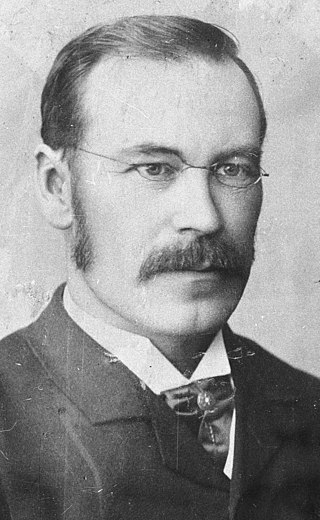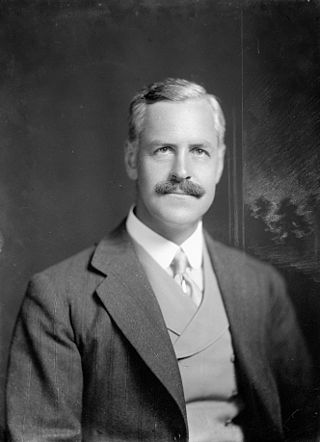Related Research Articles

Kerry James "Chester" Borrows was a New Zealand National Party politician who served as a Member of the New Zealand Parliament (MP) from 2005 to 2017.

Whanganui is a New Zealand parliamentary electorate. It was first established in 1860 for the 3rd Parliament and has existed continuously since then.

George Hutchison was a New Zealand politician from Taranaki.
Waimarino was a New Zealand parliamentary electorate that existed from 1911 to 1954, and from 1963 to 1972. It was rural in nature and was represented by four Members of Parliament.
Taranaki was a New Zealand parliamentary electorate that existed for three periods between 1881 and 1996. It was represented by nine Members of Parliament.
Western Maori was one of New Zealand's four original parliamentary Māori electorates established in 1868, along with Northern Maori, Eastern Maori and Southern Maori. In 1996, with the introduction of MMP, the Maori electorates were updated, and Western Maori was replaced with the Te Tai Hauāuru and Te Puku O Te Whenua electorates.
Stratford is a former parliamentary electorate, in Taranaki, New Zealand. It existed from 1908 to 1946, and from 1954 to 1978. It was represented by six Members of Parliament.
Waitotara was a New Zealand parliamentary electorate in South Taranaki. It existed from 1881 to 1893, and again from 1978 to 1996. It was represented by four Members of Parliament.
Omata was a New Zealand electorate. It was located in Taranaki and based on the township of Omata. One of the original 24 electorates, it existed from 1853 to 1870.
Egmont is a former New Zealand electorate, in south Taranaki. It existed from 1871 to 1978.
Patea is a former New Zealand electorate in south Taranaki. It existed from 1893 to 1963.
Wellington, was a parliamentary electorate in Wellington, New Zealand. It existed from 1853 to 1905 with a break in the 1880s. It was a multi-member electorate. The electorate was represented, over the years, by 24 members of parliament.
Hawera was a parliamentary electorate in the South Taranaki District of New Zealand from 1896 to 1908. It was represented by two Members of Parliament over the four parliamentary terms of its existence.
Frederick Henry Haselden (1849–1941) was a conservative Member of Parliament from the Taranaki Region in New Zealand for the Patea electorate.
The 1954 Patea by election was held on 31 July during the 30th New Zealand Parliament, and was caused by the resignation of incumbent National MP, William Sheat.
The 1915 Bay of Islands by-election was a by-election held on 8 June 1915 during the 19th New Zealand Parliament in the Northland electorate of Bay of Islands. The by-election came about because Vernon Reed's win in the 1914 general election was declared void by an electoral court. The seat was won by William Stewart of the Reform Party. Reed, who was also of the Reform Party, was barred by the court from standing for election for 12 months.

The 1917 Bay of Islands by-election was a by-election held on 19 March 1917 during the 19th New Zealand Parliament in the Northland electorate of Bay of Islands. The by-election came about because Vernon Reed's win in the 1914 general election had been declared void by an electoral court, and Reed barred from standing for a year. The seat was won by William Stewart, Reed's Reform Party colleague, in the resulting 1915 by-election. When Reed became eligible again, Stewart resigned and Reed won the 1917 by-election unopposed.
The 1909 Rangitikei by-election was a by-election held during the 17th New Zealand Parliament in the Rangitikei electorate of the North Island. This was the sixth by-election since the Rangitikei electorate was established for the 1861 election. The previous by-election took place in 1892 and the following one took place in 1978. The Second Ballot Act 1908 was in force and in the first ballot, and Frank Hockly of the opposition Reform Party won the first ballot, but Robert William Smith of the governing Liberal Party was ultimately chosen in the second ballot.

Debbie Anne Ngarewa-Packer is a New Zealand politician, iwi leader and activist. She is a Member of Parliament and co-leader of Te Pāti Māori alongside Rawiri Waititi, and is the chief executive of the Ngāti Ruanui iwi.
References
- ↑ "Patea By-election". Taranaki Herald in Papers Past. 20 July 1901.
- ↑ "Election Result". Feilding Star in Papers Past (New Zealand). 24 July 1901.
- ↑ "Election Result". Wanganui Herald in Papers Past (New Zealand). 24 July 1901.
- ↑ "Election Result". Wanganui Herald in Papers Past. 20 July 1901.
- ↑ "John Heslop". Wanganui Herald in Papers Past. 9 July 1901.
- ↑ "The Patea Election". Timaru Herald. 9 July 1901 – via Papers Past.
- ↑ "The Patea Election". Taranaki Herald. 7 November 1901 – via Papers Past.
- ↑ "The Patea Election". Taranaki Daily News. 8 November 1901 – via Papers Past.
- ↑ "Electoral Petition". Star in Papers Past. 10 October 1901.
- ↑ "Electoral Petition". Colonist in Papers Past. 10 October 1901.
- ↑ "The Patea Election". Waikato Argus. 9 November 1901 – via Papers Past.
- ↑ "The Patea Election". The New Zealand Herald . 9 November 1901 – via Papers Past.